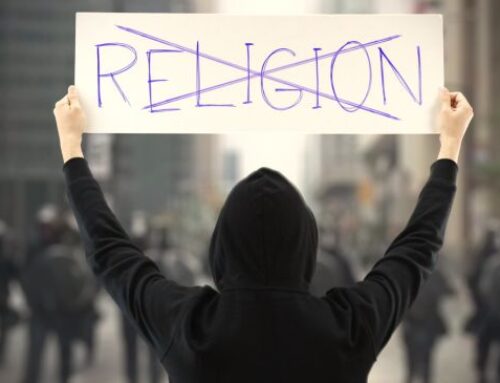Pro-life physicians in Ontario should beware: The Ontario Human Rights Commission has served notice that any physician who refuses to perform an abortion could be charged with violating the ban on discrimination on the basis of sex in section 1 of the Ontario Human Rights Code.
Section 2(a) of the Canadian Charter of Rights and Freedoms guarantees “freedom of conscience and religion.” And the Canadian Medical Association maintains that: “Physicians should not be forced to participate in abortions… The CMA stresses that physicians who decline to participate in abortion should not be discriminated against, and emphasizes the need to respect the rights of conscientious objectors, especially those in training for obstetrics and gynecology, and anaesthesia.” But these considerations are of no account to the Ontario Human Rights Commission. It insists that physicians in Ontario have no right in law to refuse to provide any medical service on the ground of their moral or religious beliefs.
In a submission to the College of Physicians and Surgeons of Ontario (CPSO) on Feb. 14 2008, the Commission justified this stance on the ground that: “The Supreme Court of Canada recognized in the Trinity Western decision that providers of public services are expected to essentially ‘check their personal views at the door” when providing their services.”
At issue in Trinity Western was a decision by the British Columbia College of Teachers (BCCT) not to certify a teaching course at Trinity Western University on the ground that the moral code at this Evangelical Protestant institution requires students to affirm that same-sex sexual relations are sinful and wrong. In its 2001 Trinity Western ruling, the Supreme Court of Canada overturned the decision of the BCCT on the ground that: “The freedom to hold beliefs is broader than the freedom to act on them. Absent concrete evidence that training teachers at TWU fosters discrimination in the public schools of B.C., the freedom of individuals to adhere to certain religious beliefs while at TWU should be respected … Acting on those beliefs, however, is a very different matter … Discriminatory conduct by a public school teacher when on duty should always be subject to disciplinary proceedings.”
By analogy, the Ontario Human Rights Commission holds that physicians can believe that abortion is sinful and wrong, but have no legal or constitutional right to act on that belief when providing services to their patients. In its February submission to the College of Physicians and Surgeons of Ontario, the Commission specifically stated: “A physician’s denial of services or refusal to provide a woman with information relating to contraception or abortion, for example, would be discriminatory based on sex, as only women can become pregnant.” In addition, the Commission warned that “the Code protections relating to sex also include gender identity and expression.”
Consequently, in a draft statement on “Physicians and the Ontario Human Rights Code” issued in June, the College advised: “Within the (Ontario Human Rights) Code, there is no defence for refusing to provide a service on the basis of one of the prohibited grounds. This means that a physician who refuses to provide a service or refuses to accept a patient on the basis of a prohibited ground such as sex or sexual orientation may be acting contrary to the Code, even if the refusal is based on the physician’s moral or religious belief.”
“For example,” the College added, “a physician who is opposed to same sex procreation for religious reasons and therefore refuses to refer a homosexual couple for fertility treatment may be in breach of the Code.”
Note the conditional “may be in breach of the Code.” The College is not certain what the law requires. And the same goes for the Commission. In its submission to the College, the Commission observed that if a physician is employed by an organization, that organization has a duty under the Ontario Human Rights Code to accommodate the physician’s religious beliefs. The Commission explained: “This may take the form of ensuring that another physician is able to provide the service that the patient requires in a timely and dignified manner.
However, the physician’s interest in accommodation needs to be weighed against the impact on the patient. The scope of the accommodation of the physician’s religious belief may need to be limited where it is not possible to provide accommodation without a discriminatory impact on the patient, such as delay or disruption of service, or the creation of a judgemental or otherwise poisoned environment for the patient.”
Is that clear? Obviously not. In a follow-up submission to the College on August 31, 2008, the Commission suggested that the College amend its draft statement on Physicians and the Ontario Human Rights Code to state that in cases of rights conflicts: “Courts balance these complex claims based on the particulars of each case. The College is therefore unable to advise physicians how the Courts will decide cases where they must balance the rights of physicians with those of their patients.”
In this way, the Commission has acknowledged that it does not know, that the College cannot know, and, therefore, that no lawyer, physician or anyone else can know if a pro-life physician employed by a hospital or clinic is, or is not, legally obligated under the Ontario Human Rights Code to participate in an abortion at the request of a patient, regardless of the physician’s honestly held conviction that abortion is an evil that can never be justified.
Consider the implications for the rule of law of this admission by the Commission about its uncertainty over the requirements of the Ontario Human Rights Code. In a classic 19th-century text, Introduction to the Study of the Law of the Constitution, A.V. Dicey authoritatively asserted: “When we say the supremacy or the rule of law is a characteristic of the English constitution, we mean, in the first place, that no man is punishable or can be lawfully made to suffer in body or goods except for a distinct breach of law established in the ordinary legal manner before the ordinary Courts of the land. In this sense the rule of law is contrasted with every system of government based on the exercise by persons in authority of wide, arbitrary, or discretionary powers of constraint.”
In an influential, 20th-century treatise The Road to Serfdom, Friedrich Hayek likewise wrote: “Nothing distinguishes more clearly conditions in a free country from those in a country under arbitrary government than the observance in the former of the great principles known as the Rule of Law. Stripped of all technicalities, this means that government in all its actions is bound by rules fixed and announced beforehand – rules which make it possible to foresee with fair certainty how the authority will use its coercive powers in given circumstances and to plan one’s individual affairs on the basis of this knowledge.”
Prior to the 1980s, the government and the courts of Canada were bound by rules fixed and announced beforehand in the common law, statute laws, and the Constitution of Canada as interpreted in binding legal precedents. Canadians had the protection of freedom under law. Pro-life physicians and nurses, in particular, could know with fair certainty that they were free under the laws of Canada to refuse to participate in the evil of abortion.
Today there can be no such certainty. Under the colour of upholding the Canadian Charter of Rights and Freedoms and the various federal and provincial human rights codes, judges and human rights adjudicators exercise such wide, arbitrary and discretionary powers that Canadians can no longer foresee with fair certainty what the law requires.
For this reason, any pro-life physician in a province that bans discrimination on the ground of sex should beware: He could end up in jail as a prisoner of conscience simply for refusing to participate in an abortion.





